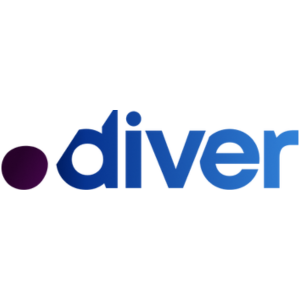Understanding the Basics of a Digital Marketing Strategy
Staying up to date with digital marketing is a challenge for any business, so make sure you get help from a company such as Digital Quantistico for promoting your business. From social media to SEO, online advertising to email campaigns, understanding digital marketing can be overwhelming if you don't have the right information. This guide provides an overview of the essential elements of digital marketing that every business should know.
Understand Your Audience and Targeting.
Identifying and understanding your target audience is key to any successful digital marketing campaign. Who are they, and why would they be interested in what you’re offering? Knowing your customers’ demographics, likes, dislikes, and interests can help you find the right place to reach them online. Once you know your target audience, you can use tools like Google Adwords and Facebook Ads Manager to narrow down your focus by age range, location, interests, or behaviour.
Set Your Goals for the Digital Marketing Initiative.
Before you start building your digital marketing strategy, it’s important to set some achievable goals for what you’d like to achieve. What are the long-term objectives of the campaign? Are you looking to increase brand awareness, gain more website visits and conversions, or generate leads for new customers? Setting SMART (specific, measurable, achievable, relevant and time bound) goals is essential in understanding what success looks like for your digital marketing campaign.
Employ a Variety of Tactics in Your Digital Strategy.
Once you’ve set your objectives, it’s time to create the tactics which will help you reach them. There are a variety of digital marketing channels available including PPC, social media, content marketing and more. By combining different tactics you can create a campaign which amplifies each other resulting in greater reach and an increase in return on investment.
Take Advantage of SEO Best Practices.
Search engine optimization (SEO) is one digital marketing strategy every marketer should be taking advantage of. Optimizing your website to ensure it appears in Google’s search results requires research and regular maintenance. Focus on understanding which keywords will be most effective for your goals, and make sure to regularly update content with those keywords included. This will help you remain visible and relevant to the target audience, resulting in increased conversions.
Measure and Analyze Campaign Performance Regularly.
Knowing how well your campaigns are performing is an essential part of any digital marketing strategy. Regular analysis will help you make better-informed decisions and ensure that you are getting the desired ROI from your efforts. There are a variety of tools available to track key performance indicators such as website traffic, social media interactions, conversions, and leads. Taking the time to set up tracking and incorporate it into your existing systems can be extremely beneficial.
- Part 1 Understanding the Basics of a Digital Marketing Strategy
- Part 1 Understanding the Basics of a Digital Marketing Strategy
Up Next:
-
Part 1Understanding the Basics of a Digital Marketing Strategy
Staying up to date with digital marketing is a challenge for any business, so make sure you get help from a company such as Digital Quantistico for promoting your business. From social media to SEO, online advertising to email campaigns, understanding digital marketing can be overwhelming if you don't have the right information. This guide provides an overview of the essential elements of digital marketing that every business should know.
Understand Your Audience and Targeting.
Identifying and understanding your target audience is key to any successful digital marketing campaign. Who are they, and why would they be interested in what you’re offering? Knowing your customers’ demographics, likes, dislikes, and interests can help you find the right place to reach them online. Once you know your target audience, you can use tools like Google Adwords and Facebook Ads Manager to narrow down your focus by age range, location, interests, or behaviour.
Set Your Goals for the Digital Marketing Initiative.
Before you start building your digital marketing strategy, it’s important to set some achievable goals for what you’d like to achieve. What are the long-term objectives of the campaign? Are you looking to increase brand awareness, gain more website visits and conversions, or generate leads for new customers? Setting SMART (specific, measurable, achievable, relevant and time bound) goals is essential in understanding what success looks like for your digital marketing campaign.
Employ a Variety of Tactics in Your Digital Strategy.
Once you’ve set your objectives, it’s time to create the tactics which will help you reach them. There are a variety of digital marketing channels available including PPC, social media, content marketing and more. By combining different tactics you can create a campaign which amplifies each other resulting in greater reach and an increase in return on investment.
Take Advantage of SEO Best Practices.
Search engine optimization (SEO) is one digital marketing strategy every marketer should be taking advantage of. Optimizing your website to ensure it appears in Google’s search results requires research and regular maintenance. Focus on understanding which keywords will be most effective for your goals, and make sure to regularly update content with those keywords included. This will help you remain visible and relevant to the target audience, resulting in increased conversions.
Measure and Analyze Campaign Performance Regularly.
Knowing how well your campaigns are performing is an essential part of any digital marketing strategy. Regular analysis will help you make better-informed decisions and ensure that you are getting the desired ROI from your efforts. There are a variety of tools available to track key performance indicators such as website traffic, social media interactions, conversions, and leads. Taking the time to set up tracking and incorporate it into your existing systems can be extremely beneficial.










